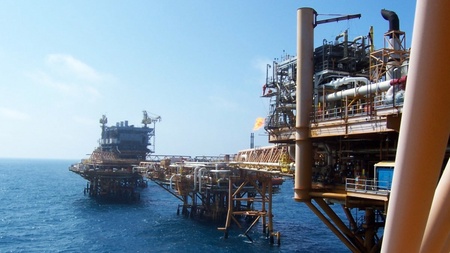More needs to be done to investigate the short and long-term impact of the Oil and Gas (O&G) industry on EU fisheries, according to a recent report conducted by academics at the University of Aberdeen.
The report, presented to the Fisheries Committee in the European Parliament, also says lessons learned in the North Sea are applicable to the newer areas of oil and gas exploration.
The Impact of Oil & Gas Drilling Accidents on EU Fisheries report by Dr David Green and Dr Cristina Gomez of the University of Aberdeen’s Institute for Coastal Science and Management (AICSM) provides for the first time a review of oil and gas related incidents and accidents in relation to fisheries in EU waters.
“We found that the O&G industry in Europe has been very good at recording, examining and making significant improvements in the wake of O&G accidents,” explains Dr Green.
The report highlights an overall decline in the number of offshore oil & gas accidents since the industry’s birth, as well as a decline in the impact these accidents have on the environment and fisheries.
The study notes that historically, tanker spills were the cause of the majority of oil spills in European waters, but this has declined as the result of more oil being transported through pipes, and the improvement in tanker safety features and technology.
It also mentions that although exceptional incidents such as oil rig blow outs and tanker spills have the largest short-term impact on the environment and on fisheries, small accidents have an unknown impact in the long-term.
“Our report concluded that more needs to be done to look into both the short- and long-term effects of these spills on fisheries, fish species and the ecosystem.
“After any big incident there is an enquiry and it is very much in the public eye, but after the initial investigations, we found that scientific studies do not always investigate the long-term effects of e.g. spills on the eco-system and on marine life.
“We know a lot about the short term – estimates of fish numbers affected etc. - but we know relatively little about the duration and effects of oil in the system? How far does it spread? How long does it persist? How toxic is the oil? And does the system clean itself over time? Most research often focuses only on the event at the time and then interest fades without the funds to carry on further research studies.
“We currently do not know enough about the spread and persistence of oil pollution and chemicals in the environment or on fisheries and we need to know more about where the oil ends up, how toxic it is, and how long it will affect different fish species. Indeed it could remain in the ecosystem much longer than we think, in the food chain, and we need to know more. There are still many gaps in the scientific understanding that require more funding and more studies.”
Dr Green added: “The impact of any major incident goes beyond the environmental fallout. After the Braer tanker spill off Shetland in 1993, there was a direct and sustained negative effect on local fisheries.
“In many European countries - such as Italy, Spain, Belgium and the Netherlands (and to a lesser extent the UK) – where fish consumption is high - there is growing concern about what impact oil and gas drilling may have on the fisheries resource – not to mention the effects on tourism and the economies of these areas.”
With drilling operations now expanding into the Mediterranean, the Black Sea, and the Baltic, and the recent environmental disaster in the Gulf of Mexico, this timely report urges the EU to liaise more closely with involved non-EU states to ensure those countries also adopt the same stringent health and safety rules, response and compensation legislation as those that have been developed for the North Sea, including the recent EU Directive 2013/30 from July 2013.
“The North Sea is relatively shallow, whilst areas of the Mediterranean are deeper and can be on fault lines,” adds Dr Green. “The different environmental characteristics will pose new challenges to the O&G industry in these areas, requiring technological advances and adaptation.
“It is crucial that the EU looks to influence the legislation of non-EU countries in these areas regarding how they prevent accidents from happening, but also what action is taken when something does happen, as well as tackling issues such as responsibility and compensation. The procedures in place for the North Sea should be used as a template to follow in these expanding areas of exploration.
“The benefit in Europe is that we already have this huge amount of expertise and experience from the North Sea, documentation, databases, scientific studies and reports, and GIS mapping etc. But we still need to explore the long-term effects and impacts on fisheries in greater depth to be certain.”


